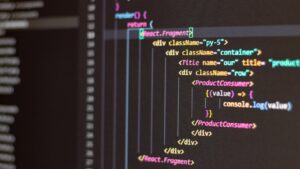In the realm of Java programming, encountering a stack overflow is a common issue that developers often grapple with. It’s a situation  where the call stack, a vital component for tracking program execution, becomes overwhelmed with more data than it can handle, leading to a crash. Understanding the causes, symptoms, and solutions to Java stack overflow errors is crucial for any programmer navigating the complexities of software development.
where the call stack, a vital component for tracking program execution, becomes overwhelmed with more data than it can handle, leading to a crash. Understanding the causes, symptoms, and solutions to Java stack overflow errors is crucial for any programmer navigating the complexities of software development.
When a Java program hits a stack overflow, it’s not just a technical hiccup; it can disrupt the entire application’s functionality, causing frustration for both developers and end-users. By delving into the intricacies of how stack overflow occurs in Java and implementing best practices to prevent and troubleshoot such errors, programmers can elevate their coding skills and create more robust, stable applications.
Java Stack Overflow
A Java stack overflow occurs when the call stack, a built-in data structure used to manage function calls in a program, exceeds its memory limits. This can lead to a program crash, disrupting the application’s normal flow and causing frustration for developers and users.
What Is a Stack Overflow?
In Java programming, a stack overflow occurs when a function call exceeds the memory allocated for the call stack. When a function is called, a block of memory is allocated to store its variables and execution context. If the call stack reaches its memory limit due to excessive function calls (also known as recursion without a base case), it results in a stack overflow.
- Recursion without Base Case: One of the common causes of stack overflow in Java is when a recursive function doesn’t have a base case or termination condition. This leads to an infinite loop of function calls, exhausting the stack’s memory.
- Excessive Stack Memory Usage: Allocating large data structures or arrays in a recursive function can quickly consume the stack’s memory, triggering a stack overflow error.
- Infinite Loops: Writing code with infinite loops, where the termination condition is never met, can also cause a stack overflow by continuously adding function calls to the stack without releasing them.
- Insufficient Stack Size: In some cases, the default stack size allocated to a Java application may not be sufficient to handle the depth of function calls, especially in scenarios requiring deep recursion.
Understanding these causes is crucial for Java programmers to proactively prevent stack overflow errors and enhance the stability of their applications.
Common Scenarios Leading to Java Stack Overflow
Recursive Calls
In Java programming, recursive calls can frequently lead to stack overflow errors, particularly when there isn’t a proper termination condition in place. When a method calls itself recursively without an exit point, it can consume the stack memory excessively, ultimately causing a stack overflow. Developers should meticulously define base cases to ensure recursive functions terminate correctly and avoid stack overflow issues.
Preventing Java Stack Overflow
When developing Java applications, adhering to coding best practices is essential to prevent stack overflow errors. By following guidelines such as defining proper termination conditions for recursive functions and ensuring that loops have exit conditions, developers can significantly reduce the risk of encountering stack overflow issues.
Coding Best Practices
- Define termination conditions: It’s crucial to establish base cases for recursive functions to prevent infinite recursion, which can lead to stack overflow errors. By clearly defining when the recursion should stop, developers can safeguard their code against excessive
 stack memory usage.
stack memory usage. - Use iterative approaches when applicable: In scenarios where recursion might pose a risk of stack overflow, opting for iterative solutions can be a safer choice. By converting recursive algorithms into iterative ones, developers can mitigate the chances of encountering stack overflow problems.
- Stack analysis tools: Utilizing tools that monitor and analyze stack usage can provide valuable insights into the memory consumption patterns of Java applications. These tools can help developers identify potential areas of improvement and optimize stack allocation to prevent overflow errors.
- Profiling tools: Profiling tools offer developers a detailed view of how their code utilizes resources, including stack memory. By analyzing stack usage trends and identifying bottlenecks, developers can make informed decisions to optimize memory allocation and prevent stack overflow incidents.

